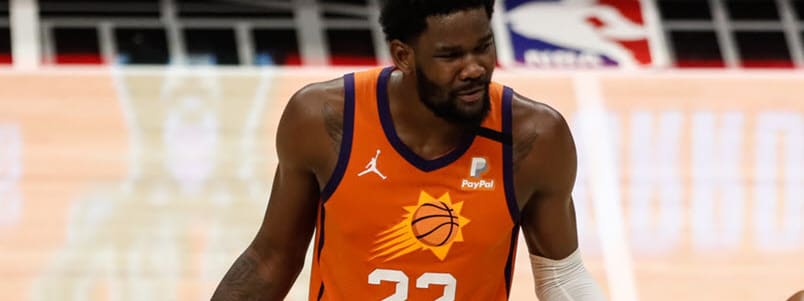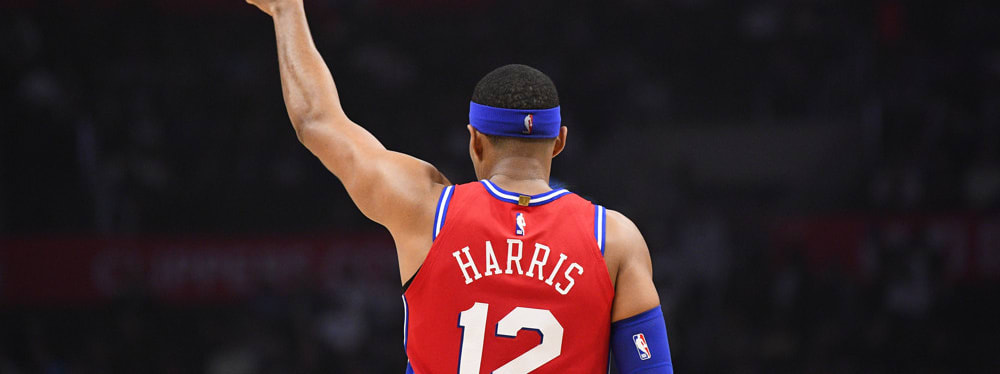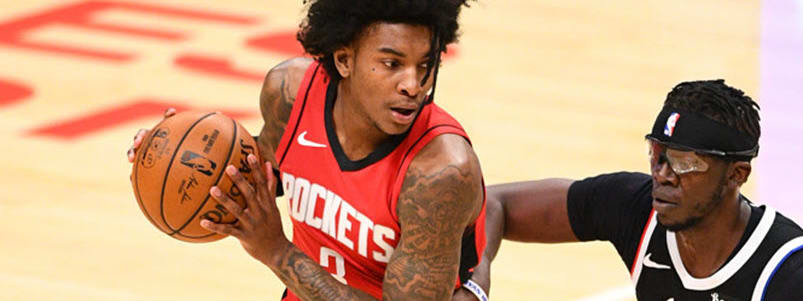Recent RotoWire Articles Featuring Dewayne Dedmon
See More
Dedmon is a reliable backup center for the Heat and will likely have a nearly identical role next season. He averaged 6.3 points, 5.8 rebounds, 0.7 assists and 0.6 blocks in 15.9 minutes last season. He also shot 56.6 percent from the field, so his efficient scoring, rebounding and rim protection are valuable bench assets. However, at the age of 32, he is unlikely to receive much more playing time than he did last season. He did make 15 starts last season due to Bam Adebayo's thumb injury, but his extended playing time ultimately led to a knee injury of his own. To get the best out of him, the Heat will likely continue to play him as a backup center with around 15 to 20 minutes of game action. If an injury occurs to Adebayo, Dedmon could be fantasy relevant, as the Heat are very thin in the frontcourt.
After a brief stint with the Sacramento Kings last season, Dedmon was traded back to the Atlanta Hawks during the year -- the same place he had spent the previous two seasons. In 44 games last season, Dedmon had a down year, averaging only 5.8 points, 5.7 rebounds and 0.9 blocks on just 40 percent shooting. The center also averaged 2.4 three-pointers attempted per game and shot a horrific 20.6 percent. Other than last season, Dedmon has tended to be efficient in his limited backup role. Heading into 2020-21, he was dealt to the rebuilding Pistons, who likely don't have long-term plans to keep him. However, if Dedmon remains on the roster by the start of the season, he could see real minutes at center given the potential lack of other options. If he can find a way to garner sixth-man minutes, he'll be worth rostering in fantasy.
Dedmon will join the Kings on a three-year, $41 million deal after two years with Atlanta. Dedmon will play for his fourth team in four years after stops in San Antonio and Orlando prior to playing with the Hawks. Dedmon averaged a career-best 10.8 points to go with 7.5 rebounds in 2018, draining 1.3 threes on 38.2 percent shooting from downtown -- both career-highs. Dedmon added a long-range game to his offensive repertoire, though his biggest stride came in his defensive production. He averaged 1.1 steals and 1.1 blocks per game in 2018, showcasing his potential as a rim-protector. The two-way player seems likely to be the Kings' starting center in 2019, and it's a role in which he could continue his growth on both ends of the floor. His biggest competition comes in the form of Harry Giles, though it's still reasonable to expect Dedmon to at least see the 26.2 minutes per game he averaged in 52 starts last season.
Playing for his third team in as many seasons, Dedmon saw the most extensive action of his career after joining Atlanta following previous stints in Dallas and Orlando. Dedmon was the team's top center for much of the year, starting 46 of the 62 games he played in, while averaging 24.9 minutes. He translated that to a near double-double of 10.0 points and 7.9 rebounds, though his efficiency took quite a bit of a hit with the increase in usage, falling to 52.4 percent from the field compared to 62.2 percent a year prior. In addition, Dedmon knocked down 50 three-pointers at a 35.5 percent clip, which was especially surprising considering the big man had never hit a three-pointer since joining the NBA in 2013. The Hawks made a few moves this offseason, most notably sending Dennis Schroder to the Thunder and Mike Muscala to the 76ers. Schroder led the Hawks' scoring attack last year, so his departure could create a few more shot attempts elsewhere on the roster. That said, it seems more likely guys like Kent Bazemore, Taurean Prince and John Collins soak up those extra touches, rather than Dedmon. The Hawks did add a somewhat intriguing center in Alex Len, who has shown flashes at times when pushed into extended minutes and is just 25 years old. He could push Dedmon for playing time if he shows well during training camp, so that will be a situation to monitor. Still, Dedmon remains the favorite to open the year as a starter and that would likely come with a similar workload and overall production from the 2017-18 campaign. Look for him to be asset in deeper leagues as a rebound specialist that can hit double-digit points on a night-to-night basis, though again, it would still be wise to keep an eye on Len's progress behind him.
Dedmon's 2016-17 campaign found him in his biggest role to date. After spending the previous two seasons in Orlando, he made the jump to the contending Spurs and surprisingly stepped into a sizable role right away. Gaining coach Gregg Popovich's trust, Dedmon started 37 of the 76 games he played in, allowing him to average 17.5 minutes per contest. That was a career high and was complemented with 5.1 points and 6.5 rebounds, while shooting 62.2 percent from the floor. Dedmon's steady improvement allowed him to cash in with a two-year, $14 million contract with the Hawks this offseason. He's the favorite to immediately jump in as Atlanta's starting center, though he'll have to fend of any sort of push from Miles Plumlee. Still, a spot in the top unit with the Hawks should mean a decent bump in minutes, which translates to better numbers overall. Dedmon still isn't the biggest threat offensively and most of his gains should be made in the rebound and block categories. That doesn't mean Dedmon's points aren't going to change, as they'll certainly go up, but those in Fantasy shouldn't be relying on him for his scoring. Either way, Dedmon's value is on the rise as long as he doesn't flop in training camp and loses minutes to a guy like Plumlee or Mike Muscala. It's also worth it to consider the fact that Dedmon shot just 69.9 percent from the free-throw line, which hurts his value in rotisserie leagues.
An afterthought in former coach Jacque Vaughn's rotation, Dedmon didn't receive steady playing time until interim coach James Borrego started him 15 of the final 21 games. Concluding his second season in the league, Dedmon averaged 3.7 points, 5.0 rebounds, and 0.8 blocks in 14 minutes per game over 59 contests. He converted a healthy 57 percent of his field goal attempts, a noticeable improvement from his rookie season, but only connected on 53 percent of his free-throw tries. Dedmon replaced Channing Frye in the starting lineup in March, and while healthy, averaged 1.1 blocks as a starter. The 25-year-old center held opponents to 44 percent shooting at the rim, one of the best marks in the league, and possessed a team-best 98.5 defensive rating on the league's 25th-worst defense. However, he averaged 6.0 fouls per 36 minutes, drastically reducing his playing time. With Jason Smith trading places with Kyle O'Quinn in the offseason, and the Magic replacing interim coach Borrego with Scott Skiles, Dedmon must prove himself all over again.
Dewayne Dedmon is entering his second NBA season. During his rookie campaign - spread across three organizations and concluding in Orlando - Dedmon averaged 3.1 points, 4.1 rebounds, 0.2 assists, 0.2 steals, and 0.7 blocks in 13 minutes per game through 31 games played. The 25-year-old center shot 46 percent from the field on 2.7 attempts and 66 percent from the free-throw line on 1.0 attempt. Dedmon spent the majority of his rookie season in the D-League and ended the regular season on a low note, starting the final six games but only converting 30 percent of his shots, a product of no longer facing second units regularly. Even with his relatively high block numbers, a rim deterrent he was not, allowing opponents to shoot 61 percent at the rim last season, second worst to Reggie Evans among non-guards with at least two chances per game. Dedmon claims to have gained eight pounds of muscle this offseason but is not on most fantasy radars as his offensive struggles and spot behind Nikola Vucevic and Kyle O'Quinn on the depth chart curtail expectations heading into the season.













